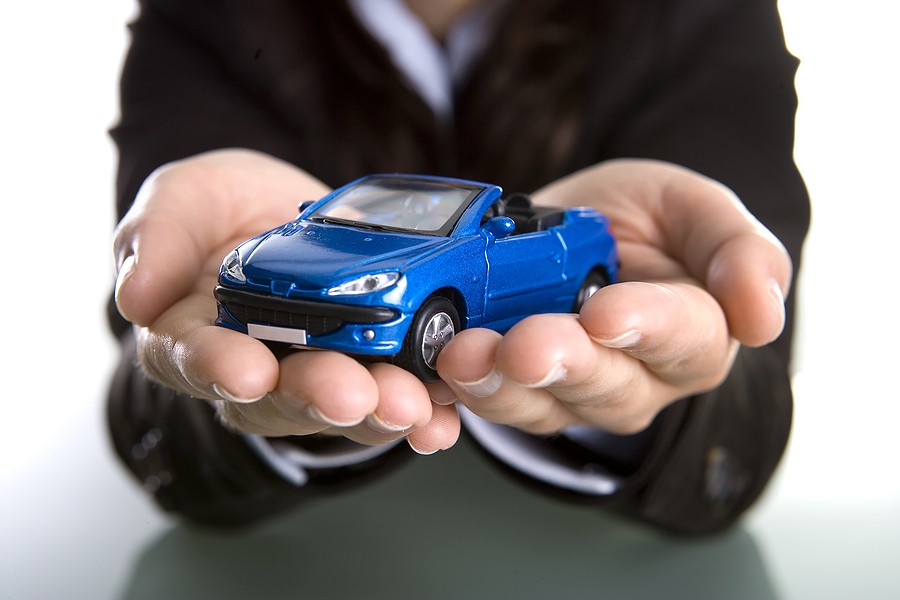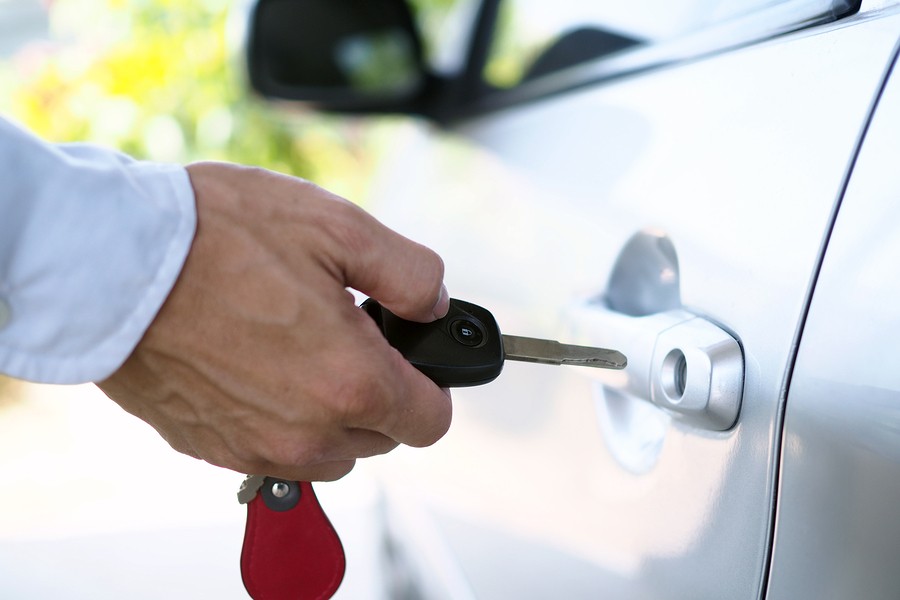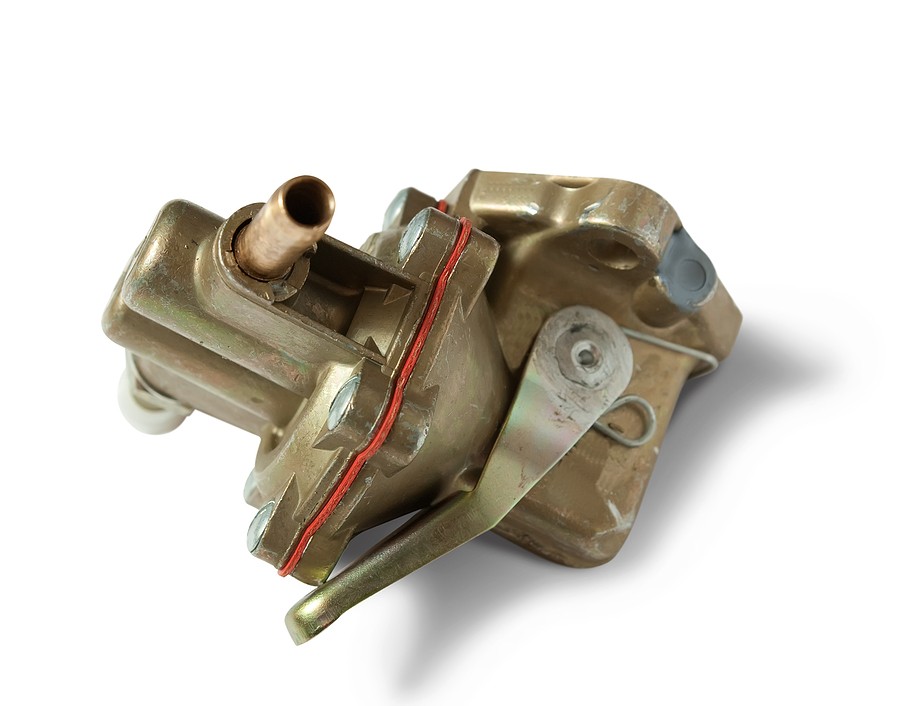Here are the common symptoms of a bad oil pump:
- Low oil pressure
- Engine overheating
- Weird noises from the valvetrain
- Strange noises from the oil pump
- Other noises from the hydraulic lifter
The oil pump is a significant component in your vehicle's lubrication system. It is responsible for pumping oil around the engine's different components to keep it lubricated and prevent engine overheating.
Although the oil pump is a very durable component and is designed to allow it to withstand all extreme conditions, it might get to a point where it fails before it should. In other words, there are some instances where oil pumps fail before reaching the end of their lifetime.
This article summarizes the main symptoms of a bad oil pump. Once you notice any of these symptoms, you must take the issue seriously and replace the oil pump before dealing with other complications that could cost you the entire engine.

What is an oil pump, and what does it do?
Before we highlight the details about the common symptoms of a bad oil pump, it is essential for you as a driver to understand what the oil pump in the first place is and what does it do in your vehicle.
As the name suggests, the oil pump is an essential component in the lubrication system. It is responsible for pumping oil from the storing reservoir to the different elements around the engine, so it gets lubricated properly without any issues.
Without a perfectly running oil pump, your engine's compartment will not receive the right level of lubrication. When this happens, it leads to significant damage is causing engine overheating. If you don't already know, engine overheating is a serious problem, and when the engine happens to overheat beyond the maximum threshold, it leads to engine self-destruction.
Unfortunately, car owners have to place the entire engine by a brand new, rebuilt, or used engine in many and in overheating scenarios. Unfortunately, this does not guarantee that the engine overheating problem will not reoccur, so a driver should understand what to do so you don't deal with engine overheating problems.
Maintaining your oil pump is one of the many steps you have to implement to enjoy your vehicle and have it serve you as long as possible.

How long should the oil pump last?
Oil pumps are typically durable components, and they don't go bad unless you hit the 60,000 miles, if not the 70,000 miles in most instances. Therefore, you don't necessarily have to replace an oil pump now and then, and as long as you didn't hit the 60,000 miles, you should be good to go.
Whenever you hit the maximum threshold, you'll have to consult your mechanic and replace the oil pump. There are some conversations between automotive experts about replacing the oil pump regardless of its condition. In other words, even if your oil pump is not in bad condition, it is recommended that you replace it as you approach the 60,000 miles just in case you don't deal with engine problems.
As we indicated before, the oil pump is linked to the engine, and any simple problem in the oil pump can easily damage the engine. Therefore, why delay replacing the oil pump if you're approaching the end of its lifetime?
Symptoms of a bad oil pump
While there is a maximum threshold for the lifespan of the oil pump, it doesn't mean that the oil pump might not go bad earlier. In other words, depending on your driving environment and style, you might deal with situations where the oil pump goes bad way before the 60,000 miles.
Therefore, if you want to stay on the safe side, you'd better monitor for any symptoms of a bad oil pump. Unfortunately, these symptoms are very common, and they typically grab your attention to certain internal problems, whether those related to a bad oil pump or any other components.
Let's take a closer look at some of the common symptoms of add oil pump as reported by automotive experts:
1. Low oil pressure
Unsurprisingly, when the oil pump is not working properly, you can easily deal with low oil pressure. A gauge on the vehicle dashboard is responsible for continuously communicating with you and telling you about the current oil pressure in the lubrication system.
When this gauge does not find the right oil level, it will throw an error and show you a warning light indicating low oil level pressure.
Of course, low oil pressure can be linked to various problems that have to do with oil itself or with the supply system. For example, the oil level might drop, causing a drop in the oil pressure level because of oil leaks or wrong viscosities.

However, one of the very common reasons for dropping the engine oil pressure level is a bad oil pump.
Therefore, it is recommended that you consult your mechanic and have him perform a thorough inspection throughout the entire lubrication system to confirm the faulty components. There might be a combination of both a failed oil pump and some oil leaks around the lubrication system in some instances. You must take care of all damages to maintain your vehicle and restore the right oil pressure level.
2. Engine overheating
If the engine does not receive the right amount of oil at the right pressure, some engines for components might not receive lubrication. As a result, the internal components will grind against each other, causing friction and higher temperatures.
Engine overheating is never fun, and it's one of the very critical issues that any engine could suffer from. Unfortunately, engine overheating can lead to seasoning and self-destruction in no time.
Therefore, if you look at the dashboard and realize that the engine gauge temperature is reading very high, it indicates an internal problem, which might be linked to a bad oil pump.
As we indicated in the low oil pressure before, the problem might be linked to a bad oil pump, but it also might be linked to some other components, if not a combination of both.
Therefore, your mechanic needs to inspect and tell you what is going on.
3. Weird noises from the valvetrain
Hearing loud noises coming from any component of your vehicle is never fun. Unfortunately, the loud noises are just one way for your car to grab your attention to internal problems. Therefore, you must not ignore these loud noises, and you should take them seriously because they're most likely related to internal issues. While these issues might be minor, they can be extremely major and might cause significant damages that could cost you thousands of dollars in a very short time.
One of the first consequences of a bad oil pump is hearing weird noises from the valvetrain.
The valvetrain has a lot of smaller components like the valve guides, seals, pushrods, etc. These components require a sufficient level of lubrication over time. If that didn't happen, you could easily deal with some loud noises coming because of these components as they interact with each other without lubrication.
4. Strange noises from the oil pump
When the oil pump is about to fail, and before it even does, it will start making some weird whirling or whining noises. This happens because the oil pump tries very hard to push the oil to the different components, but it can't. You'll notice that these noises are very loud and they don't stop as you idle your car.
What's happening here is that the internal gears inside the oil pump are about to fail, and they're just trying to grab your attention to replace the oil pump as soon as possible.

5. Other noises from the hydraulic lifter
The hydraulic lifters are components linked to the valvetrain, and these lifters also require enough lubrication to perform properly. If they don't do so, they will start making loud noises because of the increased pressure on the lifters, which is never good.
Therefore, if you don't want to damage the oil pump and the surrounding components, you must replace the pump as soon as possible.
How much does it cost to replace an oil pump?
Assuming that you confirm that the oil pump is in bad condition, the next step is to understand how much to expect to replace this pump.
Oil pump replacement cost ranges from $300 to $2500. Unfortunately, this price range is very wide and depends heavily on your vehicle's type, design, and the location where you get the job done.
If you decided to have the oil pump replaced at a small independent shop, you don't have to worry about labor costs because typically, the hourly rate for independent shops is different than what's needed for a dealership.
However, if you're driving a luxury or valuable car, you may not want to 7485 save on parts replacements because it's easy for inexperienced mechanics to cause damages because of mistakes that lead to very high repair costs.
Some car owners have certain mechanical skill sets and can replace their oil pumps. However, if this is your first time, it is never a good idea to experience your car and replace a sensitive component like the oil pump unless you're 100% confident that you can do it properly without introducing any mistakes.
Can oil pumps fail prematurely?
Unfortunately, yes. Some practices and processes could lead to damaging the oil pump before they should. Therefore, it is important for you as a driver to understand what these are causes and how to prevent them as much as possible so you extend the lifetime of your oil pump and prevent engine problems.
Here are some examples of the different causes that could lead to damaging the oil pump prematurely:

1- Low oil level
A significant drop in the oil level leads to damaging the oil pump. Imagine if the oil pump is trying to push oil around the engine compartment and it doesn't have the right oil level. All that's going to happen is too much friction within the pump itself, damaging it Prematurely.
2- Oil contamination
Oil contamination is another common cause for damaging the oil pump prematurely. When the oil contains a lot of foreign particles, it gets stuck within the oil pump and impacts the way oil flows. The oil pump is designed to pump oil with certain characteristics, and if the oil has contaminations, the oil pump cannot produce the right energy to pump this type of oil and will fail prematurely.
3- Engine sludge
Engine sludge is another obstacle that impacts the lifespan of your mutual oil pump. When the engine sludge is building up, it prevents oil from flowing properly around the engine, and it will force the oil pump to produce more energy than it should, leading to damaging it earlier than before.
Symptoms of a bad oil pump: Final thoughts
Your oil pump is a very important component in your lubrication system. It is responsible for pumping the oil at the right pressure, so it gets around every single component of your engine. If the oil pump is not working properly, it means that this oil will not reach inaccessible components, and when this happens, it leads to significant engine damage is due to overheating.
As a driver, you must keep an eye on every symptom indicating that the water pump is bad. This article summarized the symptoms of a bad oil pump that you should be aware of and watch for.
Unfortunately, you might get to a point where the water pump fails suddenly because you didn't pay attention to some of the minor symptoms, and when this happens, if you had to deal with significant engine damages, that's not the end of the world. In other words, you can always sell your car and take advantage of its value to buy a better vehicle that doesn't have engine problems. If you're looking for someone to buy your car with major engine damages, you can always reach out to cash cars buyer.
Cash Cars Buyer is one of the top-rated car removal companies in the nation that guarantees to pay you the top dollars and provide you with free towing despite your living location around the united states.
Our process is very straightforward and doesn't take more than a couple of days to get your car removed safely and for the most money.
All it takes you is to:
- Describe your car’s type and condition
- Receive our instant free quote
- Accept the quote
- Get your car removed and receive your cash payment on the spot!
To learn more about our process and our teen, you can reach out to us by calling us at (773) 791-4363 or visiting our home page click on the free instant online offer.



